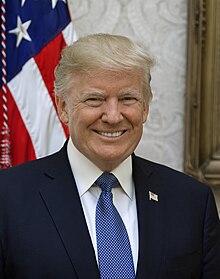One scene that really left an impression on me was during the hearings when Groves was asked by the board if he would give Oppenheimer his security clearance by current (at the time of the hearing) standards.
Before Groves even answered, I knew where it was going - of course not. Probably very few of the people would have gotten a security clearance to work on the Manhattan Project. But desperate times called for desperate measures, so to speak.
Oppenheimer himself, based on the little I have read, seemed to have mental health issues that were more severe than what was depicted in the movie. He had questionable politics, questionable taste in women, and a difficult personality.
But he was a scientific genius who happened to be in the right place at the right time in history. As I said in a previous post, I'm sure this started out as a vanity project for him. He was driven by ego, to beat his colleagues in Europe to the punch.
What I think the movie tried to convey is that at some point he realized the project and its impact were bigger than his genius and his ego.
Academics are primarily concerned with their legacy. Many of his colleagues went on to do other things - even win Nobel Prizes - and their names weren't synonymous with the bomb. However, at some point, Oppenheimer realized that as director, his name and his legacy was going to be forever known as the father of the most destructive weapon ever created and used. And I don't think he was comfortable with that (honestly, who would be).
I think the movie wants us to believe that his opposition to the hydrogen bomb was some sort of atonement or penance for his work on the atom bomb and that post-war, he became some sort of scientific "influencer" of atomic policy (at least until his security clearance was revoked). I also think it wants us to believe that, whatever association he had with Communism, he did not commit treason. Also, it makes no sense that we would give information to rival colleagues that could allow them to "scoop" him. That's the worst thing that can happen to an academic researcher, which is what he was.
I too didn't come away from the movie "liking" Oppenheimer or even feeling sorry for him, but I don't think that's what Nolan intended. The movie did carry through with the martyr theme, but in the context of the movie, that's not a desirable characteristic (Kitty is angry at him for being a martyr).
What I did come away with is an appreciation and respect for the wide ranging impact that Oppenheimer and this project have had - on the academic fields of physics, chemistry, thermodynamics, engineering, and the scientists who have built on his work, as well weapons, war, world peace, and the ethics and morality of it all.
The movie wanted us to believe that Oppenheimer died thinking his legacy was death and the destruction of the world. We all know that's not what happened (at least not yet), and I think in many ways the relative peace across the world of the last 75+ years is making us forget his name and his contributions.
This movie is really staying with me. There have been a lot of genius scientists who have made a lot of extremely significant contributions. But I'm inclined to view this one differently, not because of its larger impact, but because of what it required from Oppenheimer and his colleagues and what it left on their collective consciences. I can't think of a scientific development before or since that asked so much of the people who created it.







